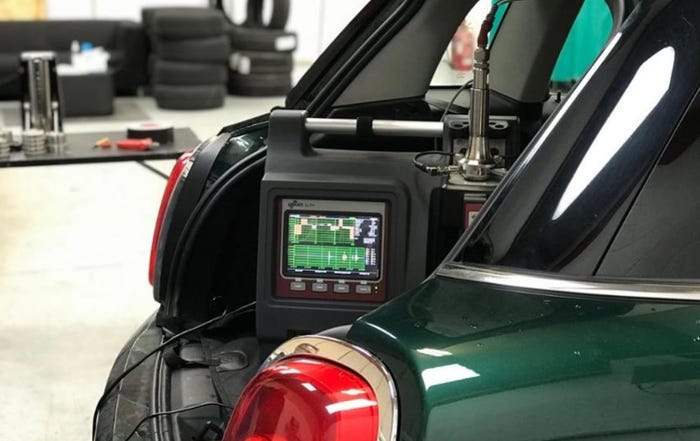
PARIS – The French government has started twisting arms to get a network of electric vehicle charging posts installed, but it has only €50 million ($65 million) to spend.
Some of that money will be used to subsidize charging stations in communities and perhaps on private property accessible to the public. But mainly, the government is asking private companies in charge of turnpikes, service stations, parking garages and shopping centers to cooperate by coming up with plans by Christmas.
“We would rather do this by contracts than by passing laws,” says Arnaud Montebourg, the French Minister of Industrial Renewal.
France is a leader in EVs, Montebourg says, and it wants to keep that position. The task is to “come to agreement on the method of participation of the private sector for recharging stations open to the public. We want everyone to do their part.”
On the demand side, France has increased the 20% EV bonus for purchasers to a maximum €7,000 ($9,000), and Montebourg has asked the government and government-owned companies to purchase at least 25% of their future vehicles as EVs or hybrids.
Most of the minister’s remarks to French business leaders refer to EVs, in particular the Renault Zoe that is to go into series production in France early next year. However, hybrids come into the picture politically, because PSA Peugeot Citroen is selling diesel hybrids and developing plug-in versions of them.
Next week, the minister will visit Toyota’s French factory, where the Yaris hybrid is made, and the Maubeuge plant where Renault builds its Kangoo ZE delivery van.
Daimler also makes the Smart Fortwo EV in France, and both Mia and Bollore have produced more than 1,500 EVs, although the Bollore Bluecars are assembled in Italy.
To encourage people to drive EVs, the minister has launched a mission to set up a recharging network and secure agreements that would reduce the cost of operating an EV through such things as free parking and reduced tolls.
Montebourg wants to go fast, and some cooperation already has been promised. LeClerc, a nationwide chain of department stores with service stations attached, already has an agreement with Renault and Nissan to install recharging points.
Two years ago, 12 cities including Bordeaux, Grenoble, Paris and Strasbourg agreed to install recharging points on public rights of way. At the end of last year, there were about 2,000 in France, and the government wants 75,000 by 2015 and 400,000 in 2020.
Jacques Pelissard, mayor of a small town in eastern France and head of the association of mayors, says cities will participate voluntarily. Montebourg says cities that get help from France’s €50 million budget should provide free parking for EVs.
Urban areas of more than 200,000 residents and the French regions are eligible for funding, as well as turnpikes, parking garages and shopping centers – if they move quickly, Montebourg says.
The private companies involved, while supportive in general of EVs, are less enthusiastic following a meeting between more than 80 executives, Montebourg and ministers for the environment and transportation.
Pierre Coppey, president of Vinci Autoroutes, says when Vinci bought several turnpikes from France, it agreed to install charging points at rest areas, but it needs to wait for European agreement on standards so it can determine the budget required.
He also says reducing tolls for EVs may run into legal problems associated with European regulations, and there are technical difficulties in using the French automated payment system.
An executive from Total, the biggest operator of service stations in France, says his company has an experimental fast-recharge point in one station, in partnership with the state, that is used very little. He says questions of safety in mixing fuel and electricity remain.
Montebourg is asking Vinci to work with the government to come up with a plan to solve the problems, and he has told Total to collaborate with the electric utility to resolve questions on safety. He assigned Philippe Hirtzman, an engineer from one of France’s prestigious universities, to lead the negotiation process.
Montebourg tells journalists the chicken-egg question has slowed the launch of EVs, but with Renault planning to start full production of the Zoe electric car in France next year, a recharging infrastructure needs to be ready.
Two other initiatives are under way:
The government is working on laws involving cooperative housing to allow recharging stations. Some 60% of French people live in single-family residences where installation of a recharging box is not a legal problem, but 40% live in co-operative housing, where installation of recharging points is now “a real mess,” Montebourg says.
Four organizations – Renault, PSA, the electric utility and a French infrastructure organization – have been grouped together in a unit called Gireve to identify all the public recharging points in France so that they can be mapped in navigation systems. They also will work on questions of how those charging stations can signal their availability and how they might be reserved. The unit also will work out how payments can be made by EVs “roaming” outside regularly traveled areas.
About the Author
You May Also Like



